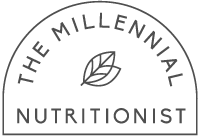Is the Whole 30 Diet Right for You? A Dietitian’s Comprehensive Guide for Making an Informed Decision
Written by Hannah Abdulla
Have you been thinking about starting Whole 30 in at the start of the new year? There is a lot to unpack here, but let's briefly start with the terms “detox” and “cleanse.” Our bodies are truly amazing when it comes to their ability to keep us alive and each organ plays a vital role in this. Organs such as the kidneys and liver are in place to rid the body of waste and toxins. The purpose of the kidneys is to filter toxins out of the blood and into the urine so we can excrete them. The liver's job is to convert toxins into waste products to be later excreted. Basically, the body is designed with a built-in detox system.
Outside of conditions that require medical intervention by a physician, the body does not need help cleansing itself. In fact, Harvard Health states the term “detox” was historically used in reference to medical procedures where a patient comes to the hospital for a medical detoxification such as dialysis.1 Fast forward and the term is now frequently used by influencers and companies as a marketing tactic.
Still on the fence about a detox? Read below to learn more about the popular program, Whole 30 from a Registered Dietitian’s perspective.
What is Whole 30?
Whole 30 is a diet program established in 2009 marketing itself as a “30-day reset” designed to help people feel more in control around food.2 The program now has a food blog, published books, a food line and merch.
The program begins with a 30-day elimination phase, followed by a 10-day reintroduction phase. During the elimination phase the program has a list of foods you must avoid in order to complete the program. Foods such as dairy, sugar (real or artificial), alcohol, grains, legumes, and certain preservatives are not allowed. Users are also not allowed to recreate foods to make them fit into the program. An example the website gives is recreating a pancake by making a banana-egg pancake. After the 30-day elimination phase, users move into a 10-day reintroduction phase. Users are encouraged to reintroduce foods one at a time and pay attention to how each food makes their body feel.
Potential Benefits
Despite this program seeming quite rigorous, there are a few potential benefits. During the 30-day elimination phase users are also told they can not weigh themselves or take measurements. Our TMN coaches kind of love this idea. While many users and clients start these types of programs to lose weight, it is important to have non-weight goals. This ties into the program asking users to pay attention to how foods make them feel during the reintroduction phase by listening to their body. Having a goal like this promotes mindful eating whether it comes to portion sizes or the foods itself.
A Dietitians Thoughts
If you are familiar with the way The Millennial Nutritionist works you probably know that clients are screened prior to starting the program and carefully matched to a coach. This ensures the client gets the most out of the program and receives a truly individualized approach while setting health goals. Unfortunately, programs like Whole 30 have a very one-size-fits-all approach that we simply can not agree with. Our clients are each unique with different sets of needs, preferences and lifestyles that play a part in their healthy journey and deserve tailored nutrition-related guidance.
Our coaches at The Millennial Nutritionist are highly educated with Bachelors and Masters degrees in nutrition and Registered Dietitian credentials. This type of background allows us to understand the dangers of labeling foods as “good” and “bad.” Having this background leads us to not being a fan of Whole 30’s rules on banning and allowing specific foods. Programs that label foods in this way may lead users to disordered eating patterns which can be detrimental to one's physical, mental and emotional well-being. Instead, we prefer to take a tailored approach with our clients. Unless there is a medical reason to eliminate foods, we teach our clients how to fit in their favorite foods in our 3 month lifestyle reset program. At TMN we understand that foods provide our body with fuel, but they also provide us with nostalgic memories, the ability to connect with other people, and for many, food is a way to honor culture.
Is Whole 30 for Me?
When making health choices we want to ask ourselves questions like- “is this something I can do long term?” or “do I see myself doing this in my 60’s and 70’s?” If the answers to those questions are no, this is likely not a sustainable decision. Instead we want to implement habits that are realistic so we can carry them throughout the duration of life. Working with a Registered Dietitian to develop personalized and sustainable nutrition related health goals may be a better option for you. If the 3 month lifestle reset program isn’t in your budget, TMN has a Millennial Living Membership option!
References
The dubious practice of Detox. Harvard Health. https://www.health.harvard.edu/staying-healthy/the-dubious-practice-of-detox. Published May 1, 2008. Accessed December 23, 2022.
26: What is the Whole30, from co-founder Mu: Just Melissa. The Whole30® Program. https://whole30.com/podcast/26/26-what-is-the-whole30-from-co-founder-mu-just-melissa/. Published August 16, 2022. Accessed December 23, 2022.
About the Author
Hannah Abdulla BS, RD
Contributing Writer
Hannah is a Raleigh, NC-based Registered Dietitian and is currently working towards her MS in Nutrition Science from Meredith College.
She enjoys writing about fad diets and adding fun recipes to the blog. If she’s not studying or keeping up with her family, she’s trying out new local restaurants downtown. Catch more of her on The Millennial Nutritionist Podcast.
